Your reps spend hours of their day on non-selling activities: hunting for the latest pitch deck, manually logging calls, or chasing down customer history across disconnected systems. This leaves a lot revenue on the table. The core enablement challenge is simple: when your team can’t instantly access the right content, data, and next steps, they lose deals to competitors who can.
The solution is a unified sales enablement platform that eliminates this friction by centralizing everything your team needs in one intuitive workspace. This guide breaks down what to look for in top-tier sales enablement software, from must-have features to implementation best practices. We’ll also compare the leading platforms to help you choose a system that empowers your team to sell faster, smarter, and with more confidence.
What is sales enablement software
Sales enablement software centralizes your content, training, and customer data in one place: so reps can find what they need instantly and focus on selling, not searching. It’s your single source of truth that transforms scattered resources into a streamlined revenue engine.
Think of it as an intelligent coach that automates the busywork (logging calls, scheduling follow-ups, surfacing the right content) while giving you complete visibility into what’s working. The result? Faster deal cycles, higher win rates, and a team that consistently crushes their numbers.
It also connects your entire go-to-market team. With monday CRM, sales, marketing, and customer success work from the same playbook, creating seamless handoffs and a unified customer journey from first touch to close.
Try monday CRMMust-have features in top sales enablement platforms
The most effective sales enablement platforms are built around a core set of indispensable features that empower your team to sell smarter and faster:
- Centralized content repository: A single, organized library for all playbooks, case studies, and one-pagers that eradicates time wasted searching for collateral. This ensures every rep has instant access to the most current and effective materials.
- Powerful automation capabilities: Non-negotiable automations that handle the laborious tasks of data entry, lead scoring, and scheduling follow-ups, liberating your team to concentrate on high-value activities like building relationships and strategic negotiation. This automation directly translates into increased selling time and a more efficient sales cycle.
- Complex analytics and reporting: Customizable dashboards that visualize pipeline health, team performance, and sales forecasts are critical for strategic decision-making. This data-driven oversight allows leaders to identify performance trends, pinpoint coaching opportunities, and ensure the entire revenue operation is moving in lockstep toward its goals.
9 best sales enablement software platforms to transform your revenue
Choosing the right sales enablement software means finding a platform your team will actually use every day. The best solution should adapt to your winning strategy, not force you to change how you work.
We’ve broken down the top platforms by what matters most: ease of use, impactful features, and team alignment. Here’s how they stack up.
| Platform Name | Best For | Key Strengths | Starting Price Range |
|---|---|---|---|
| monday CRM | Flexibility & ease of use for all teams | Intuitive UI, AI automation, broad ecosystem | $10 – $25/user/month |
| Salesforce Sales Cloud | Large enterprises & customization | Deep customization, Einstein AI, integrations | $25 – $150/user/month |
| HubSpot Sales Hub | Growing businesses & all-in-one needs | Free tier, ease of use, content & email automation | $0-120/user/month |
| Seismic | Content management & personalization | Advanced content analytics, personalization | Custom pricing |
| Highspot | Coaching & conversation intelligence | AI-driven coaching, sales analytics | $50 – $80/user/month |
| Showpad | Field sales & mobile-first teams | Offline access, visual content presentation | $35-60/user/month |
| Mindtickle | Training & learning management | Role-play, certification, learning analytics | Custom pricing |
| Gong | Conversation intelligence & analytics | Call analysis, deal insights, coaching | $100+/user/month |
| Outreach | Sales engagement & automation | Multi-channel sequences, engagement analytics | $100+/user/month |
1. monday CRM
monday CRM transforms sales enablement from a scattered mess of resources into a streamlined powerhouse that actually gets deals closed. The platform specializes in making sales content, training, and customer data instantly accessible, making it ideal for revenue teams tired of hunting for the right playbook or losing deals to poor preparation.
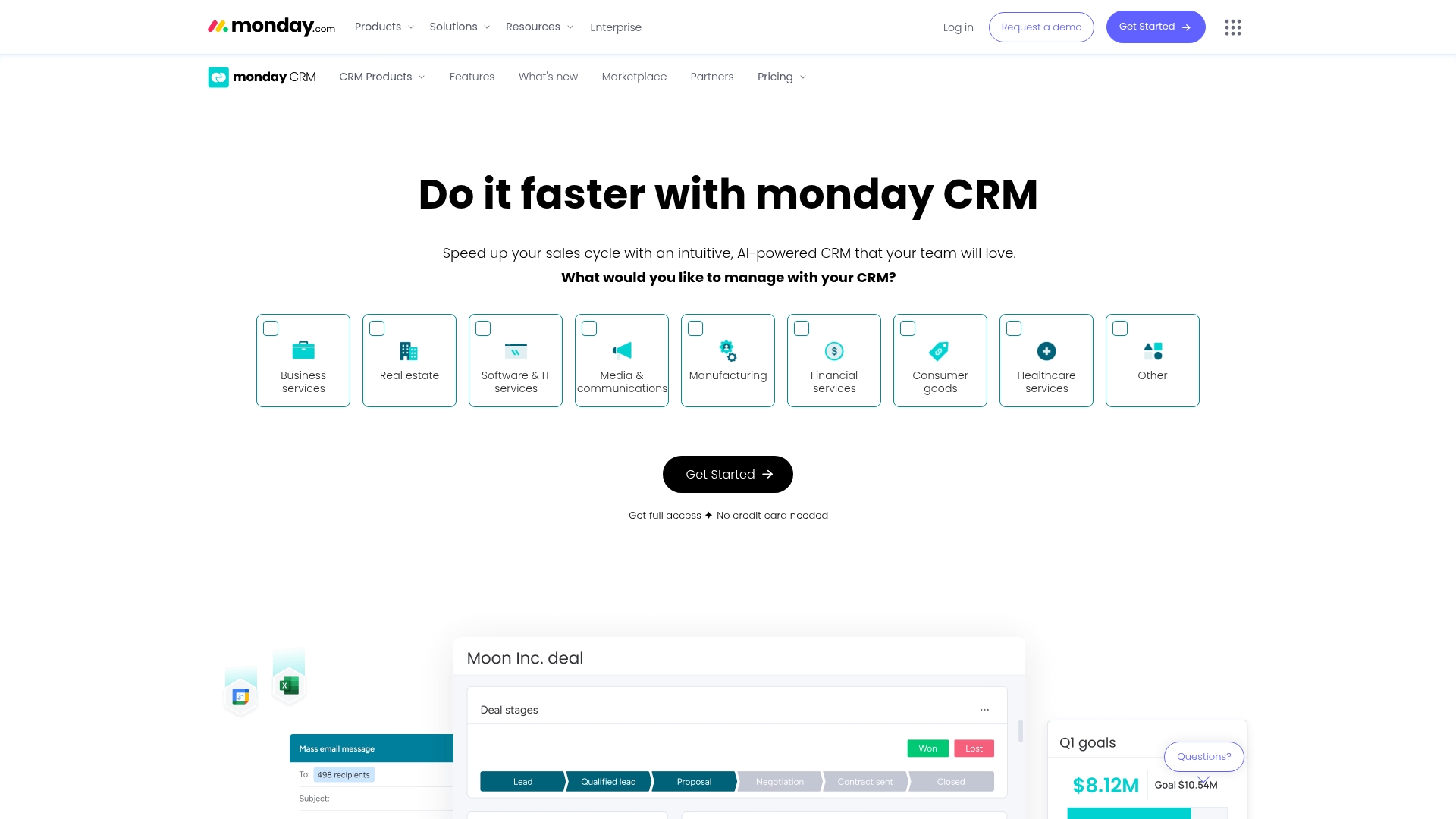
monday CRM creates a centralized sales enablement digital workspace where teams can access resources, collaborate on content development, and track performance — all while maintaining the flexibility to adapt to any sales process without technical expertise.
Key features:
- Centralized content repository for all sales collateral, playbooks, and training materials with easy team access
- AI-powered automation that handles lead scoring, data entry, and follow-up reminders to keep deals moving
- Customizable sales pipelines with visual drag-and-drop functionality that matches your specific sales process
Pricing:
- Basic: $9/month per seat (billed annually)
- Standard: $12/month per seat (billed annually)
- Pro: $19/month per seat (billed annually)
- Enterprise: Contact sales for pricing
- Minimum of 3 users required for all paid plans
- 18% discount available with annual billing
Why it stands out:
- Work OS foundation provides unmatched flexibility to customize every aspect of your sales enablement process
- Visual, intuitive interface ensures high adoption rates and shorter learning curves compared to complex legacy systems
- Unified workspace combines CRM, project management, and sales enablement in one platform for seamless collaboration
Advanced AI features
- AI-powered lead categorization automatically sorts and prioritizes prospects based on engagement and fit
- Document insight extraction pulls key information from contracts, proposals, and customer communications
- Smart follow-up automation suggests optimal timing and messaging for prospect outreach
Automations
- No-code automation recipes let teams create custom workflows without technical expertise
- Enterprise-scale automation handles up to 250K actions per month for large sales organizations
- Pre-built sales templates automate common tasks like lead assignment, deal stage updates, and reminder notifications
Integrations
- Popular tool connections with Gmail, Outlook, Slack, and major CRM platforms for seamless data flow
- API access enables custom integrations with existing sales tech stacks
- Third-party app ecosystem connects with marketing automation, communication, and analytics platforms
Sales enablement software features
- Pre-call preparation resources give reps instant access to relevant customer data and talking points
- Marketing-sales collaboration tools streamline content creation and ensure consistent messaging across teams
- Performance tracking dashboards provide real-time visibility into content usage, deal progression, and team effectiveness
2. Salesforce Sales Cloud
Designed for large organizations with complex processes, Salesforce Sales Cloud embeds sales enablement directly into its enterprise-grade CRM workflow. The platform specializes in connecting enablement activities to real revenue outcomes through its Einstein AI and deep CRM integration, making it ideal for large organizations with sophisticated customization needs.
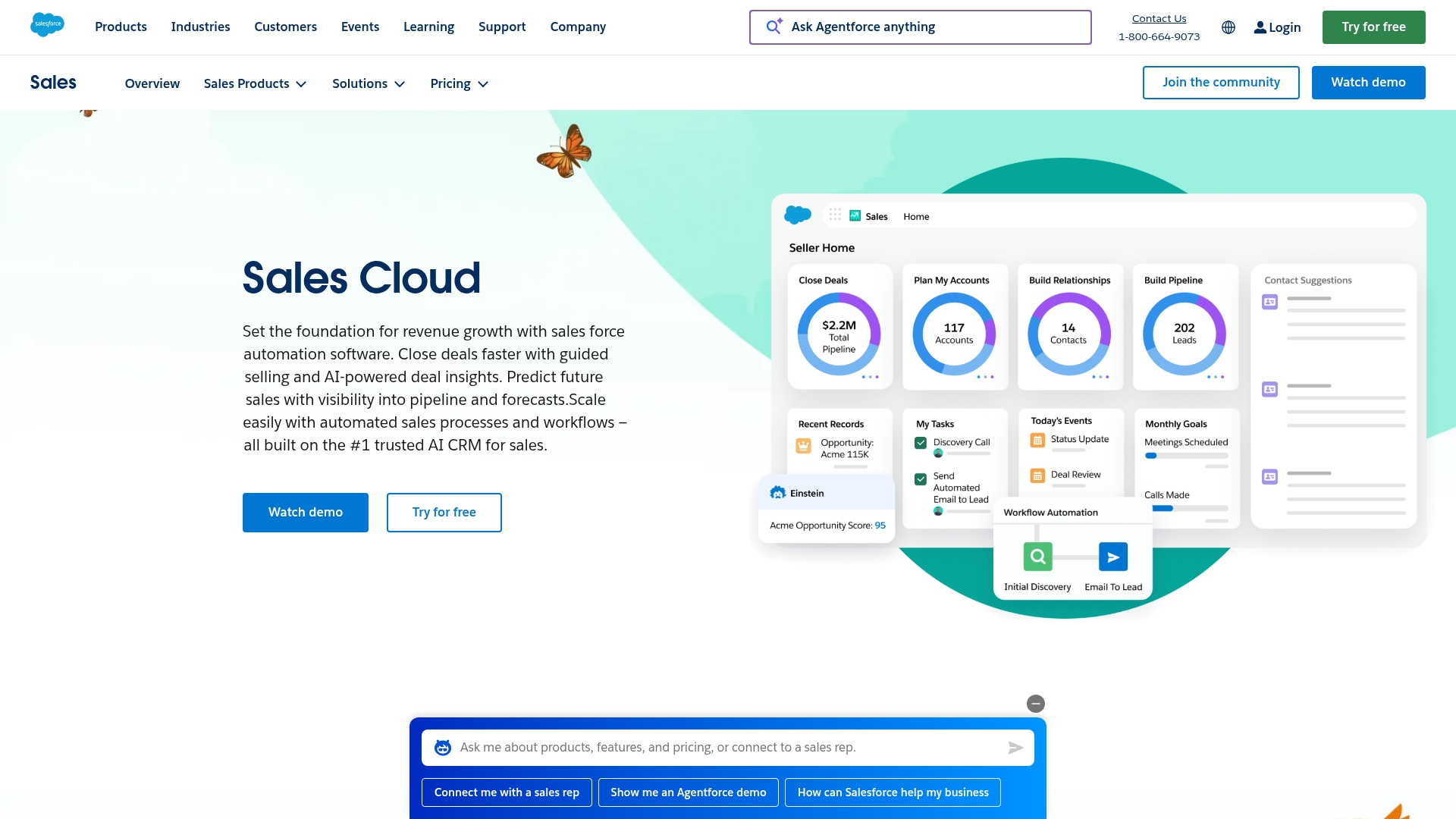
Salesforce Sales Cloud transforms sales enablement by delivering AI-powered coaching, content, and training programs within the CRM workflow, eliminating the need for reps to switch between multiple platforms while directly tying enablement activities to revenue milestones.
Key features:
- In-workflow guidance center that surfaces relevant training content, scripts, and resources exactly when reps need them during their sales activities
- Einstein AI-powered coaching that analyzes sales calls, identifies coaching opportunities, and provides automated feedback on talk tracks and conversation quality
- No-code program builder with drag-and-drop functionality and pre-built templates for onboarding, territory expansion, and product launches
Pricing:
- Sales Programs: $100/user/month (billed annually)
- Partner Tracks: Quote-based pricing
- Core Sales Cloud editions: $25 to $150/user/month depending on features selected
Considerations:
- Steep learning curve and complex setup process that often requires technical expertise for customization and optimization
- High total cost of ownership, especially when factoring in implementation, training, and ongoing maintenance requirements for enterprise deployments
3. HubSpot Sales Hub
As an all-in-one platform rooted in inbound methodology, HubSpot Sales Hub combines sales, marketing, and customer service tools into a unified, user-friendly ecosystem. The platform specializes in streamlining sales processes without overwhelming complexity, making it ideal for growing businesses. With its robust free tier and seamless integrations, HubSpot removes the friction of managing multiple disconnected systems.
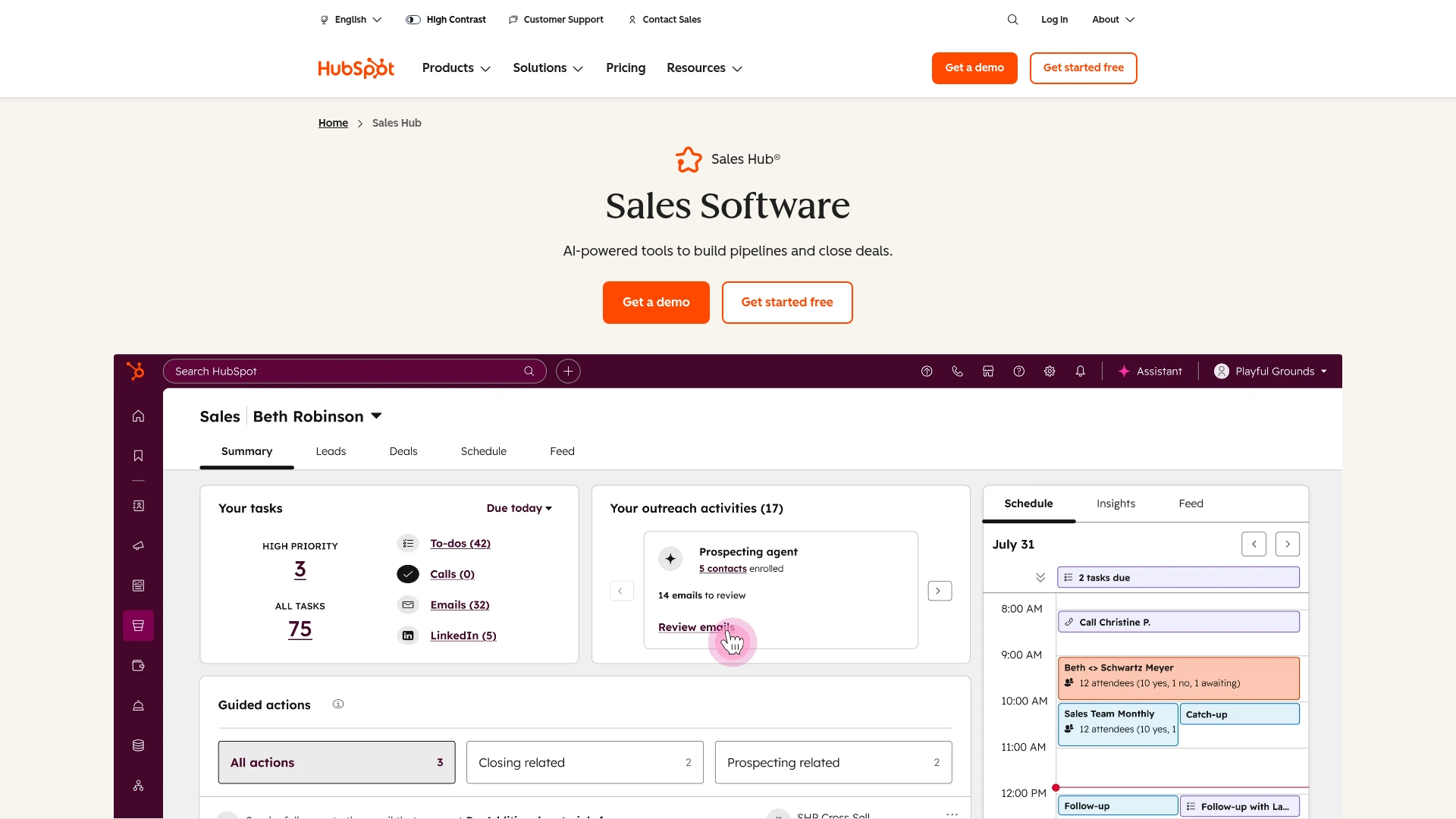
HubSpot Sales Hub empowers sales teams to close more deals by providing comprehensive tools for prospecting, pipeline management, and customer relationship building within an integrated platform that connects sales and marketing efforts.
Key features:
- Automated prospecting workspace that helps reps prioritize leads and manage daily tasks with built-in lead scoring and qualification tools
- Sales sequences and email automation that nurture prospects with personalized outreach while tracking engagement and performance
- Comprehensive analytics and forecasting powered by AI insights that provide predictive lead scoring and customizable reporting dashboards
Pricing:
- Free tier: $0/month with basic CRM features and limited functionality
- Starter: $20/user/month (billed annually) with essential sales tools
- Professional: $100/user/month (billed annually) with advanced automation and reporting
- Enterprise: $120/user/month (billed annually) with full customization and premium features
Considerations:
- Advanced features and robust automation capabilities are locked behind higher-priced Professional and Enterprise tiers, which can become expensive as teams scale
- The platform’s extensive feature set can feel overwhelming for very small businesses with simple sales processes, while large enterprises may find customization options limited compared to specialized solutions
4. Seismic
Seismic’s comprehensive sales enablement platform is engineered to help enterprise revenue teams master buyer engagement through AI-powered content management and personalization. It is ideal for large organizations with complex sales cycles and extensive content libraries.
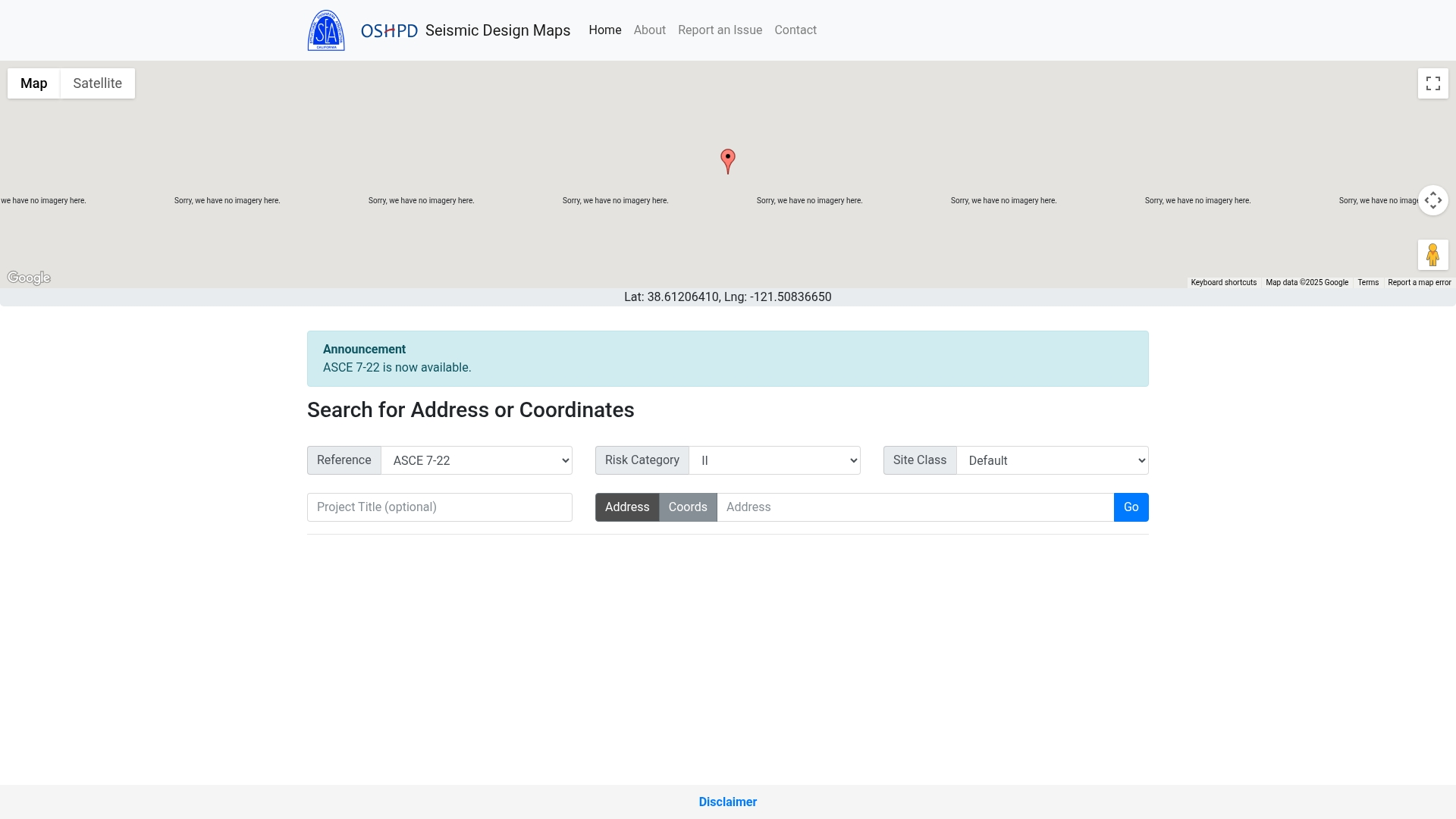
Seismic empowers enterprise sales teams to streamline content discovery, accelerate rep onboarding, and deliver personalized buyer experiences through its unified Enablement Cloud platform.
Key features:
- Aura Copilot AI assistant that automates content creation, generates meeting summaries, and provides intelligent recommendations
- LiveDocs content automation for dynamic generation and personalization of proposals and presentations
- Digital Sales Rooms that create branded, segmented pages for each account with trackable buyer engagement
Pricing:
- Pricing available upon request and customized based on organization size and requirements
- Annual costs typically range from $20,000 to $120,000 depending on users, modules, and contract length
Considerations:
- Complex implementation process with a steep learning curve that can overwhelm new users
- Premium pricing structure may be prohibitive for smaller businesses or teams with limited budgets
5. Highspot
By combining content management, training, and analytics, Highspot provides a unified sales enablement platform focused on boosting performance through AI-driven coaching and conversation intelligence. This approach makes it ideal for B2B companies looking to align their go-to-market teams and drive revenue growth.
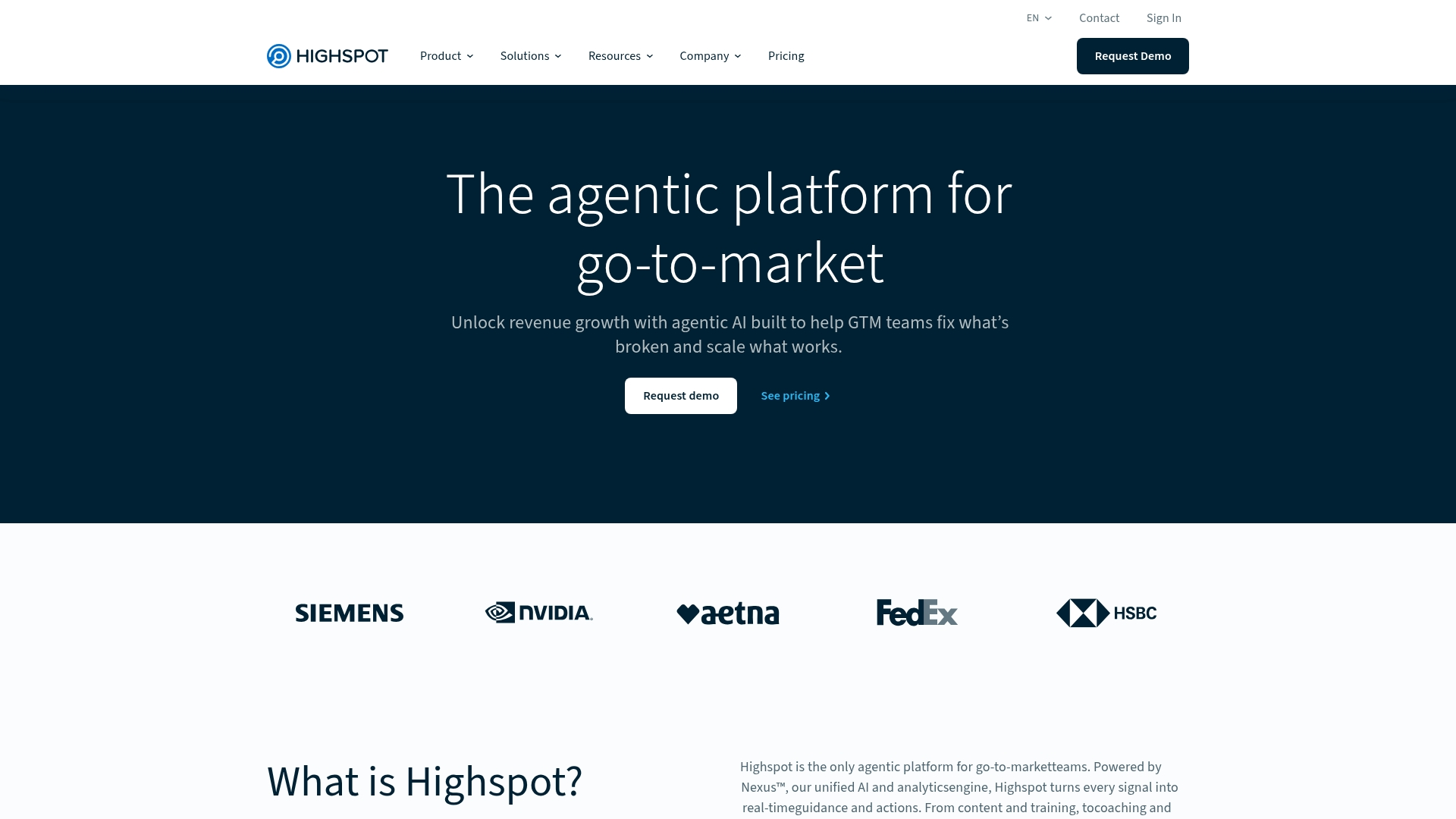
Highspot helps sales teams increase productivity by providing a centralized digital workspace for content, training, and buyer engagement tools that reduce time spent on non-selling activities.
Key features:
- AI-powered content recommendations and semantic search to help reps find the right materials quickly
- Conversation intelligence that analyzes sales interactions and provides actionable coaching insights
- Digital sales rooms for personalized buyer engagement and content tracking
Pricing:
- Custom pricing based on team size and requirements
- Quotes provided after consultation with sales team
- Pricing typically ranges from $50 to $80 per user per month according to industry reports
Considerations:
- Steep learning curve due to extensive feature set that can overwhelm new users
- Frequent UI updates may cause confusion and require ongoing training for teams
6. Showpad
Showpad’s sales enablement platform excels in creating immersive, mobile-first experiences, making it a powerful choice for organizations with distributed or field-based sales teams. Its Enablement Operating System® (eOS) transforms how sales and marketing teams collaborate to drive revenue growth in complex sales cycles.
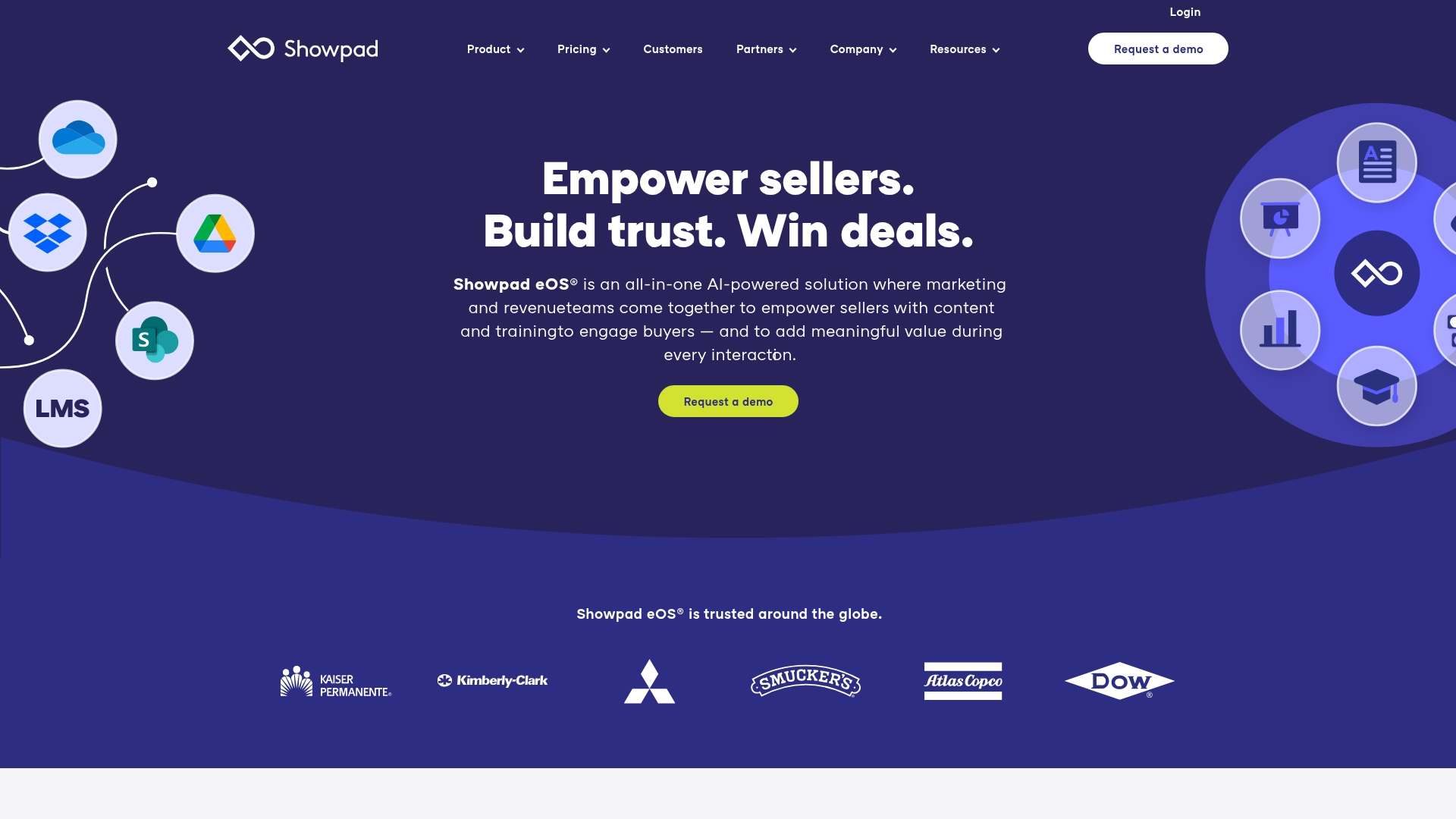
Showpad empowers sales teams to become trusted advisors by providing the right content and skills at the right time through its flexible, AI-powered enablement platform.
Key features:
- Sales content management: Creates a single source of truth for all sales materials with AI-driven search and recommendations to help sellers quickly find relevant content
- Seller effectiveness training: Offers robust onboarding, continuous learning programs, and personalized coaching capabilities including PitchIQ for practice and feedback
- Buyer engagement tools: Enables personalized, branded communication channels and real-time collaboration through features like Shared Spaces and immersive 3D experiences
Pricing:
- Custom pricing: Contact Showpad directly for tailored pricing based on your organization’s needs
- Essential package: Includes core training content, certification programs, onboarding, and analytics (pricing upon request)
- Plus package: Adds PitchIQ pitch recording and feedback capabilities, best practice sharing, and discussion features (pricing upon request)
Considerations:
- Custom pricing model lacks transparency for organizations seeking upfront cost information
- Some users report limitations in administrative content management and desire more advanced analytics capabilities
7. Mindtickle
Mindtickle focuses on elevating sales readiness, using AI-powered training and coaching to connect learning activities directly to measurable revenue outcomes. The platform specializes in comprehensive sales readiness, combining personalized onboarding, role-play simulations, and conversation intelligence to help enterprise sales organizations reduce ramp time and close more deals.
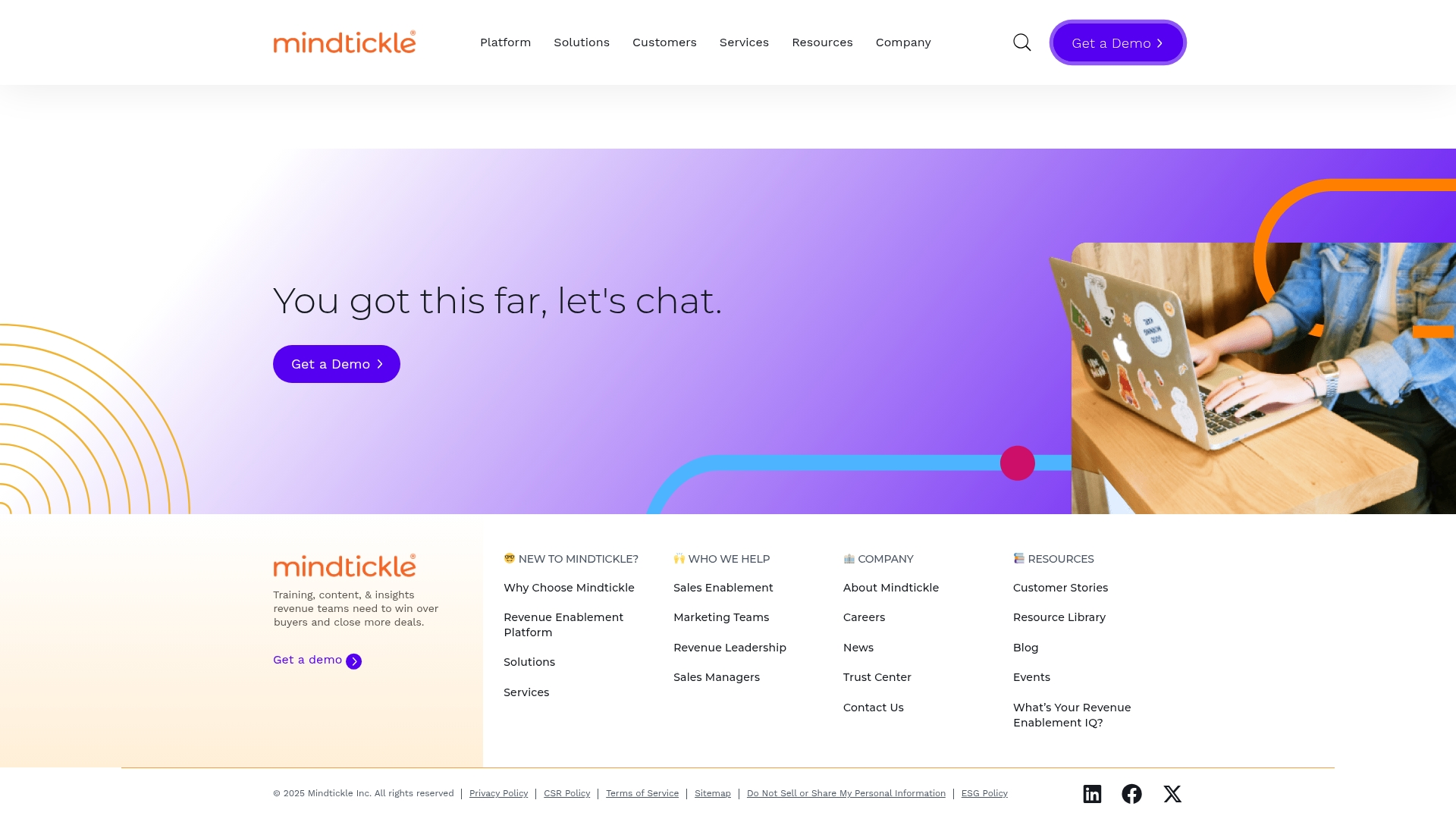
Mindtickle delivers measurable sales performance improvements through data-driven enablement programs that correlate training activities with actual revenue outcomes.
Key features:
- AI-powered role-plays with instant feedback on pitches, sentiment analysis, and speech patterns for scalable coaching
- Comprehensive analytics that track training impact on revenue, not just completion rates, with a proprietary Readiness Index
- Digital sales rooms and conversation intelligence that analyze real sales calls to identify what top performers do differently
Pricing:
- Custom pricing based on organization size and requirements
- Multiple subscription packages available: LMS, Readiness, Enable, and Transform tiers
- Annual contracts with average 36-month terms
- Contact sales for specific pricing details
Considerations:
- Initial setup can be complex and time-consuming for organizations with intricate sales structures
- The platform’s extensive feature set may feel overwhelming for new users, with some reporting a steep learning curve
8. Gong
By capturing and analyzing every customer interaction, Gong converts sales conversations into actionable revenue intelligence that helps scale winning behaviors across the team. The platform specializes in conversation analytics and AI-powered insights, making it ideal for enterprise sales teams looking to accelerate deal velocity.
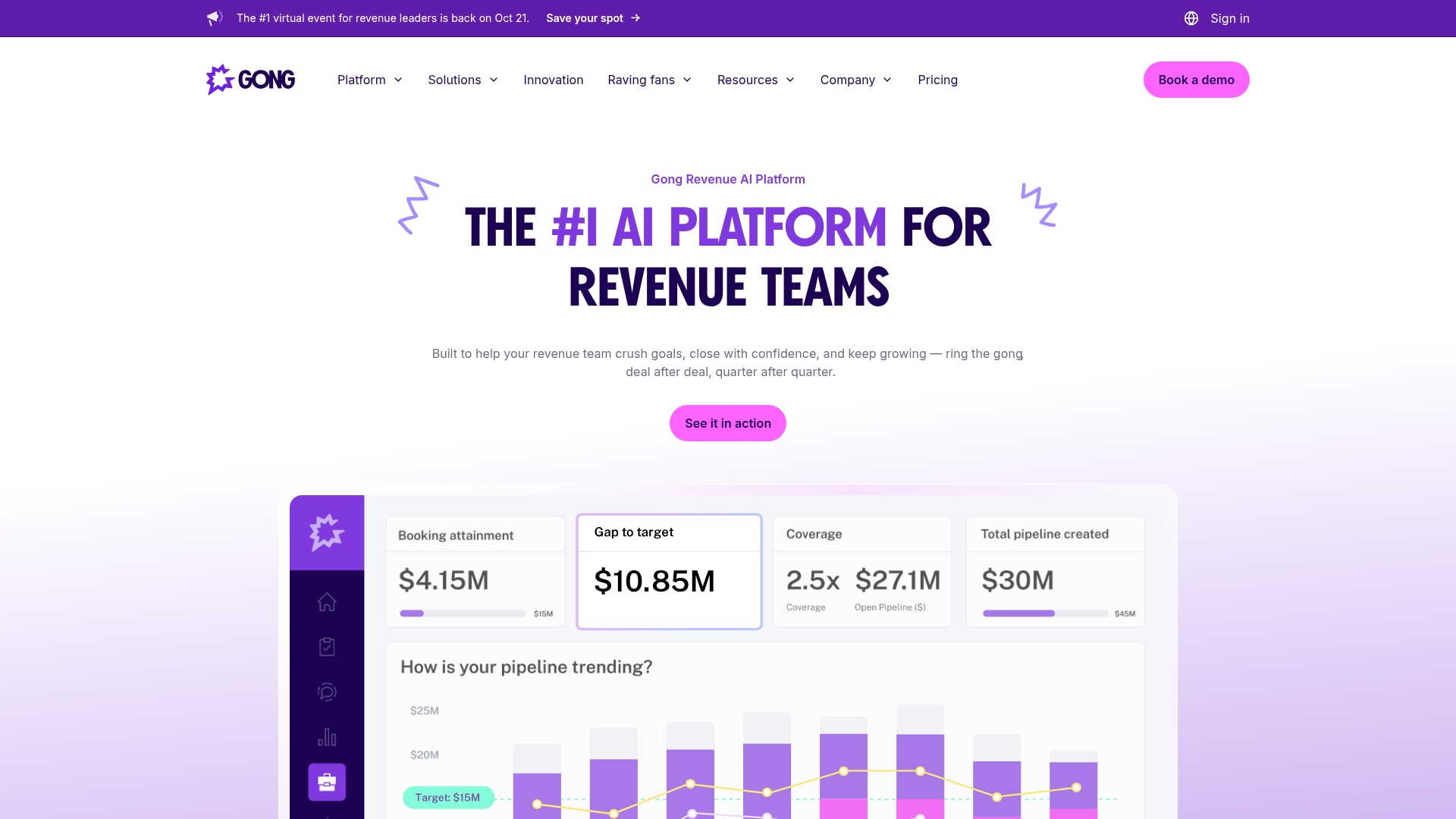
Gong captures and analyzes every sales interaction to identify what top performers do differently, enabling sales enablement teams to scale successful behaviors across the entire organization.
Key features:
- Conversation intelligence: Records, transcribes, and analyzes all sales calls, emails, and meetings with AI-powered insights
- Data-driven coaching: Provides managers with specific, actionable feedback based on real conversation data rather than subjective observations
- Deal intelligence: Tracks deal progress and flags risks like low engagement or missing decision-makers for more accurate forecasting
Pricing:
- Custom pricing: Starts at $100+ per user per month with additional platform fees
- Enterprise focus: Pricing varies based on team size and features, requiring a custom quote
- Professional services: Additional onboarding fees (typically $7,500+) and multi-year contract requirements
Considerations:
- High cost can be prohibitive for smaller teams, with significant upfront investment including platform fees and professional services
- Complex platform may require dedicated resources for training and ongoing management to maximize ROI
9. Outreach
Outreach provides a powerful sales engagement platform designed to automate multi-channel outreach and maximize deal velocity for B2B sales teams. The platform specializes in AI-powered sequence orchestration and conversation intelligence, making it ideal for scaling personalized communication across email, calls, and social touchpoints.
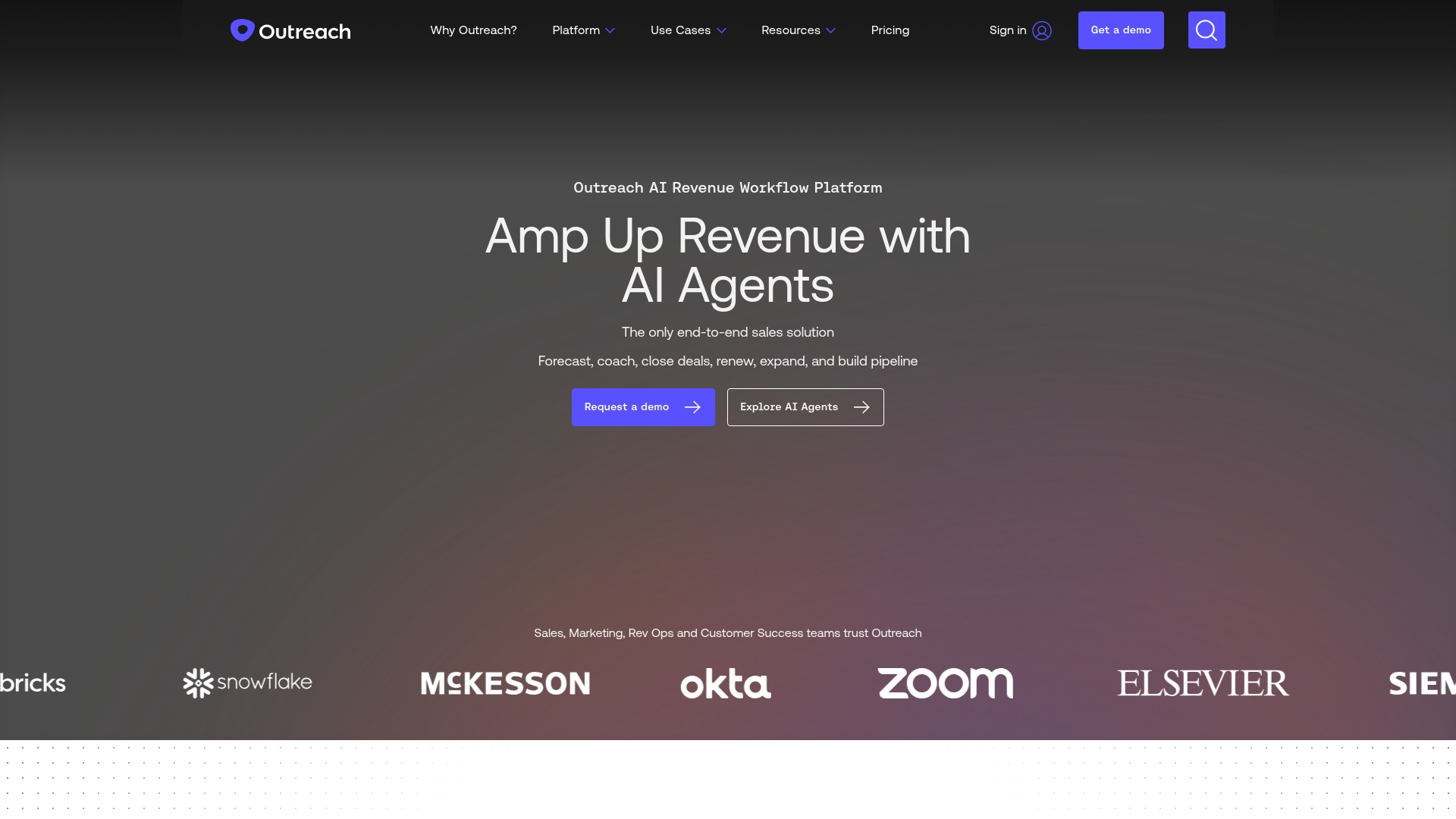
Outreach helps sales teams generate quality pipeline and increase productivity by delivering the right message to the right prospect at the right time through automated, personalized engagement sequences.
Key features:
- Automated sequences: Multi-step, multi-channel campaigns that include emails, phone calls, and social media touchpoints with personalized messaging at scale
- Conversation intelligence (Kaia): AI-powered assistant providing real-time transcription, content suggestions, and action item detection during sales calls
- Deal management and insights: AI-driven recommendations for optimal engagement timing, message optimization, and deal outcome predictions
Pricing:
- Custom pricing: Available upon request with no platform fees and support included
- Multiple packages: Engage, Call, Meet, Deal, Forecast, and Amplify packages tailored for different sales team needs
- Professional services: Additional support and customization options available
Considerations:
- Steep learning curve due to the platform’s comprehensive feature set and complexity
- High cost investment that may be prohibitive for smaller businesses, with pricing starting at $100+ per user per month
How to select the right sales enablement platform
Choosing the right platform is less about a flashy feature list and more about finding a true partner for your sales team’s unique rhythm. Use this checklist to guide your decision.
- Prioritize user adoption over features: Instead of forcing your reps to change their winning habits, the right platform should feel like it was built just for them. Zero in on a solution that removes friction from their daily workflow so they can focus on what they do best: building relationships and closing deals.
- Ensure seamless integration: A great platform acts as a cohesive digital workspace, connecting seamlessly with the email and communication platforms you already use. This creates a unified data environment that automates the administrative burden and gives your team the complete visibility they need to move faster and make smarter decisions together.
- Choose flexibility and scalability: Think beyond today’s playbook and look for a platform that can scale with your ambition. The most valuable solutions are flexible, allowing you to easily customize workflows and automations as your team grows and your strategy evolves.
Sales enablement software implementation best practices
Now that you know what to look for in a sales enablement platform, here’s how to roll it out successfully. Implementation doesn’t have to be complicated. Follow these three steps to get your team up and running fast.
Step 1: Define clear success metrics
Start by pinpointing exactly what winning looks like. Set specific, measurable goals that tie directly to revenue: whether that’s shortening your sales cycle by 20%, boosting win rates by 15%, or cutting onboarding time in half. With a shared workspace on monday CRM, your sales, marketing, and ops teams can align around these targets and work from a single playbook instead of operating in silos.
Step 2: Launch with a pilot group
The smartest way to implement is to start small and scale with confidence. Kick things off with a pilot group of 5-10 reps who can test the platform, surface quick wins, and provide feedback to perfect the process. These early champions become your best advocates, proving the value and building momentum before you roll it out company-wide.
Step 3: Monitor, optimize, and scale
Getting started is just the beginning. Winning is an ongoing game of refinement. Use monday CRM’s visual dashboards to track adoption rates, content usage, and performance metrics in real time. Gather feedback continuously and optimize your workflows based on what’s actually moving the needle.
Try monday CRMTransform your sales enablement with monday CRM
Your sales team doesn’t need another roadblock: they need a launchpad. monday CRM is that launchpad: intuitive, energizing, and built to help your reps close deals faster instead of wrestling with clunky software.
Your CRM should flex to your playbook, not force you into someone else’s. With monday CRM, customize every inch of your pipeline (deal stages, dashboards, workflows) without writing a single line of code. Your team gets the control and confidence to sell their way.
Put your work on autopilot. monday CRM automates follow-ups, syncs customer data, and gives everyone a crystal-clear view of the entire customer journey. No more departmental silos. Just a smooth, aligned path to crushing your numbers.
FAQs about sales enablement software
What is the difference between sales enablement software and CRM systems?
The difference between sales enablement software and CRM systems is that sales enablement software provides the content and coaching to improve how your team sells, while a CRM manages customer data and interactions. The best systems, like monday CRM, combine both to give your team a unified environment for everything they need to win.
How much should organizations budget for sales enablement platforms?
Costs often range from $50 – $200 per user per month, but the real focus should be on the return on investment and quick adoption. Look for a platform that delivers value from day one without hidden implementation costs or the need for a developer.
How quickly can sales teams implement sales enablement platforms?
While typical implementation can take 30 – 90 days, your team can get up and running on an intuitive, no-code platform in just a few days. The faster your team adopts the platform, the faster you’ll see results.
Which metrics best demonstrate sales enablement software ROI?
Focus on core sales metrics like win rates, deal velocity, and average deal size. Also, keep a close eye on user adoption. The best ROI comes from a platform your team actually loves to use.
Do sales enablement platforms integrate with existing CRM systems?
Yes, most platforms integrate with major CRMs, but this can create complexity and data fragmentation. A unified system that combines both sales enablement and CRM capabilities eliminates integration headaches and gives your team a single, cohesive system.
How does AI enhance modern sales enablement platforms?
AI acts like a co-pilot for your sales team by automating routine processes, analyzing conversations for coaching insights, and predicting which deals are most likely to close. It helps reps focus their energy on building relationships and winning more deals, faster.
